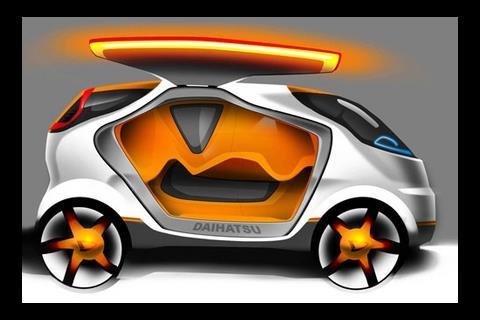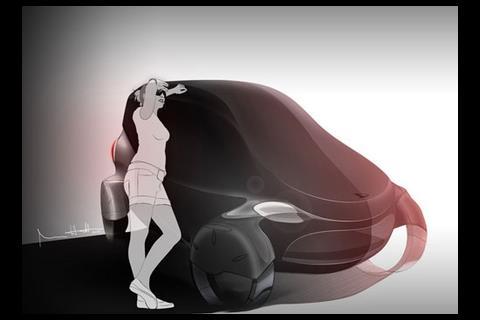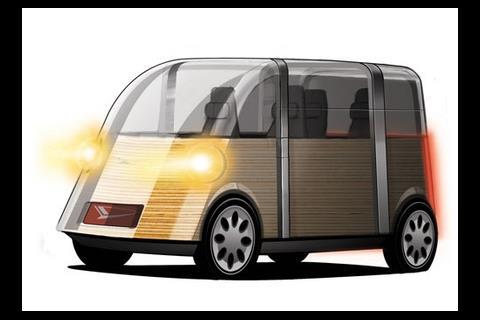RCA students redefine the Japanese Kei car for European needs
The car as an urban living space was one of the novel ideas presented by postgraduate Vehicle Design students at the Royal College of Art in a competition to design a European Kei car. EuroK-Car was sponsored by carmakers Daihatsu and Suzuki to coincide with the opening of exhibition at the Science Museum in London.
The exhibition is the brainchild of designer Kenya Hara and architect Shigeru Ban who have set out to find the connection between Japanese car design and the country’s wider cultural and visual language.
20 first year RCA students were asked to research and define the Japanese Kei car (meaning light vehicle) and project it into the European urban context.
Winning student Augustin Barbot designed a car that is aimed at commuters who need to travel into the city from the rural areas. Her ’K Car’ is driven onto a train which takes passengers into the city.
The car can be utilised as an urban living space, either as a working office or somewhere to rest whilst users are in the city. She shared the first prize with David Seesing from Germany.
Miika Heikkinen, a ‘highly commended’ winner, designed a car that would drive tourists around the Gaudi sites in her native Barcelona.
Her organic shaped structure integrates the interior and allows for a lighter and more flexible car.
Other interesting ideas included Shawn Deutchman’s ’Re’, a small green vehicle with an all glass exterior and bamboo interior aimed to blend with the natural environment.
Postscript
For more information visit .
Keijidosha or Kei car meaning light vehicle is a specifically Japanese urban vehicle typology limited to 660cc capacity, tax free, parking-eligible and technologically advanced with a maximum length of 3.4m, width of 1.48m and 2 2m height.






























No comments yet